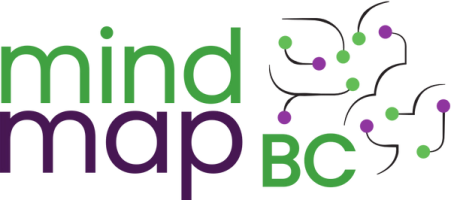Counselling Support Centre
Summary
Individual counselling
Information and referrals
Sliding Scale Available
Online resource
Remote services
Our service is a reduced fee, sliding scale for individuals 15 and up. We provide counselling for general mental health concerns, in the moderate range of severity. We take most clients on even if they are severe, but work to provide bridging service until someone is taken into other appropriate services.
Our vision is to provide low cost counselling to individuals that have lost or used all the benefits, or insurance they have. We also hope to provide support for individuals that don't meet criteria for other supports.
All of our counsellors are qualifying professionals, insured and registered as such. They are vetted and approved by their accredited universities and our counselling centre.
Please note that this organization is located in Alberta. BC residents can access support remotely.
Want to learn more about this service’s work with Two-Spirit, trans, LGBQ+ people?
We invite all service providers listed on MindMapBC to answer the following questions. These questions were developed in collaboration with community members, researchers, and mental health and other service providers. They're intended to help us understand what a service provider or organization is doing to affirm and support sexual and gender diverse service users.
See below for responses for this listing.
Want to learn more about our screening questions and filters?
Are the forms used in your practice inclusive of various sexual orientations and gender identities (e.g., opportunities to fill in pronouns, etc.)?
—Yes
Do you collect and use preferred names (rather than legal names) for all communications?
—Yes
Do you and your colleagues have experience providing services that support clients with navigating gender dysphoria*?
*TransCareBC describes gender dysphoria as a term "intended to describe the distress some trans people experience with relation to their gender identity, particularly if they would like to transition but have not yet done so".
—Yes, to some extent
I as a supervisor and director of the centre have had some training in supporting gender dysphoria, but our clinicians don't necessarily have that specific training at the time they enter the centre and start counselling. We would place with counsellors those that have that experience as requested or needed.
Please tell us how equipped you feel to support a client in determining if/when their mental health symptoms are related to their gender-related experiences or other factors? Please describe your response choice below.
—Very confident
Do you/your colleagues understand the difference between gender dysphoria and mental health conditions/symptoms that are unrelated to gender dysphoria or distress?
—Yes, to some extent
Do you and your colleagues have experience working with people who identify as living with a disability or chronic illness? Please tell us more about your experience and any training you have received.
—No
Are you and your colleagues aware of what specific barriers may exist for Two-Spirit, queer, or trans Indigenous individuals accessing your services?
—Yes, to some extent
We are supportive for all individuals that come but we don't have a specific focus on the barriers related to 2S/LGBTQ+-, because of this if someone that comes that needs individual counsellors that are aware or skilled in these areas we will provide general support as we bridge to other services that may be needed.
Are you and your colleagues aware of what specific barriers may exist for LGBQ individuals accessing your services?
—Yes, to some extent
Are you and your colleagues comfortable asking relevant questions about gender identity and sexual orientation?
—Yes
Do you offer Indigenous 2S/LGBTQ+ specific resources, for example Indigenous Elders or Knowledge Keepers?
—No
At this time we don't , but as we grow in our knowledge of resources, we would be able to provide that information to individuals that need resources or bridging support.
Do you and your colleagues ask clients about pronouns and use them appropriately?
—Yes, to some extent
Our forms capture preferred pronouns if someone requests pronouns used our counsellors would use preferred pronouns.
Are you and your colleagues aware of what specific barriers may exist for trans individuals accessing your services?
—Yes, to some extent
Does your practice have gender-neutral washrooms?
—Not applicable (please explain why this is not applicable)
We are an online service
Are there clear anti-discrimination policies that include gender identity, gender expression, and sexual orientation in your organization or practice?
—Yes
Are all individuals involved in service provision actively engaged in decolonizing their practices and/or organization? If yes, please type below what actions you and/or your organization are taking.
—Yes, to some extent
Our practice is based on Trauma informed practice and the understanding of our approaches to counselling that may relate to colonization. Our forms and having to pay are probably the most rigid colonizing expression. So we actively engage with a free, f2f intake that provides a decolonizing approach to inform and provide awareness of our services. All of our counsellors are using an individual trauma informed approach. Including supervision.
Are all individuals involved in service provision actively engaged in anti-racist practices, policies, and systems in their care model?
—Yes
Last updated: February 26, 2023
Request changes —

